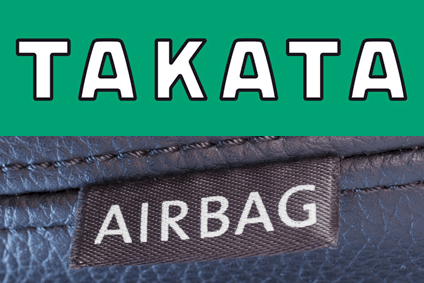
Honda Motor has dropped the embattled manufacturer Takata as its airbag supplier, concluding that the company, its longtime partner, had "misrepresented and manipulated test data". The news came as the US National Highway Traffic Safety Administration (NHTSA) said Takata had agreed to accept penalties of at least US$70m for failures involving exploding airbags that have killed at least eight people and injured at least 98.
Anthony Foxx, the US transportation secretary, has also said Takata manipulated the test data. In its consent order, the safety agency said "in several instances, Takata produced testing reports that contained selective, incomplete, or inaccurate data", the New York Times noted.

Discover B2B Marketing That Performs
Combine business intelligence and editorial excellence to reach engaged professionals across 36 leading media platforms.
"Delay, misdirection and a refusal to acknowledge the truth allowed a serious problem to become a massive crisis," Foxx said at a news conference. "When we first brought this issue to light, there was a lot of denial on the part of Takata."
In a statement cited by the New York Times, a Takata spokesman, Jared Levy, did not dispute the claims that the company had manipulated testing data.
"We do not believe that these issues which we brought to the attention of NHTSA, are connected to the current recalls which extensive testing continues to show are associated with long-term exposure to conditions of high heat and absolute humidity," Levy said. "Indeed, some of the issues relate to development testing done on inflators for Honda vehicles 15 years ago which have been subject to recalls for several years," he said.
A Honda spokesman told the New York Times information it had now indicated that Takata "was not forthcoming" during an NHTSA. investigation into the earliest recalls over the defect.
"Honda has also identified other apparent instances of misleading or inaccurate test data that were provided to Honda over time," spokesman Chris Martin, added. "The Takata airbag inflator test data of which Honda is now aware relates to a variety of testing."
Martin declined to give further details to the paper. He said Honda had alerted federal regulators to these documents as they had become available, and had ordered third-party auditing of all of Takata’s test data to more fully understand the issue.
In a news conference in Tokyo on Wednesday, Hiroshi Shimizu, Takata’s senior vice president for global quality assurance, denied company engineers had manipulated test data.
"There was no problem with our test results. But because there was variation in the data, we did not report everything. We reported only part of the data," Shimizu said. Still, he said, "there was no data manipulation".
The report noted that, though Honda has distanced itself from Takata, for years it had stood by its supplier. Airbags make up Takata’s largest business, accounting for about 40% of the company’s sales to external customers. And the United States is Takata’s largest market, accounting for about 37% of its net sales.
Honda said no new Honda and Acura models under development would be equipped with front driver or passenger Takata airbag inflators. But Takata continues to supply Honda with other safety equipment, including seatbelts.
The New York Times said Honda alerted Takata to an airbag rupture more than a decade ago. Deeming the episode an anomaly, it did not issue a recall or seek the involvement of federal safety regulators.
Internal tests conducted by Takata have been a source of increasing concern as regulators and lawmakers have tried to determine the root cause of the defect. Last year, the New York Times reported that steel inflators in two of the airbags cracked during tests. But Takata executives discounted the results and ordered the lab technicians to delete the testing data and dispose of the inflators, according to two former employees, including a senior member of the testing lab. Takata denied the accusations.
Last month, the Times reported that in 2010, as Takata and Honda assured regulators that the airbag explosions were linked to isolated manufacturing issues, they were also enlisting the help of a top pyrotechnic lab at Pennsylvania State University to determine whether its propellant, called ammonium nitrate, might have been at the heart of the problem. When the study’s 2012 conclusion cast doubt on the use of ammonium nitrate, Takata dismissed the result and waited more than two years before sharing the research with regulators.
As part of the consent order, Takata is required to phase out its use of ammonium nitrate unless it can prove that it is safe, the report noted.






